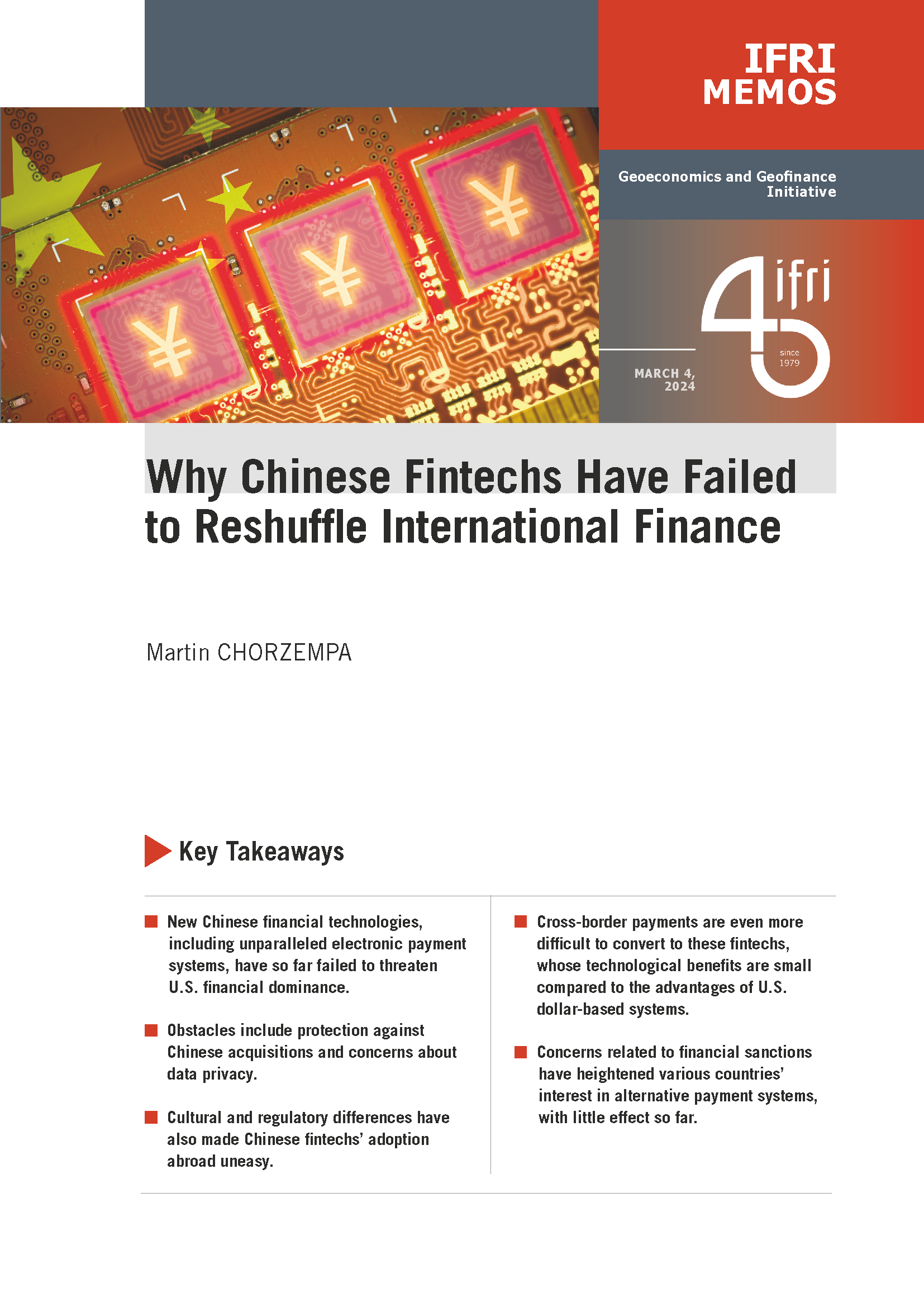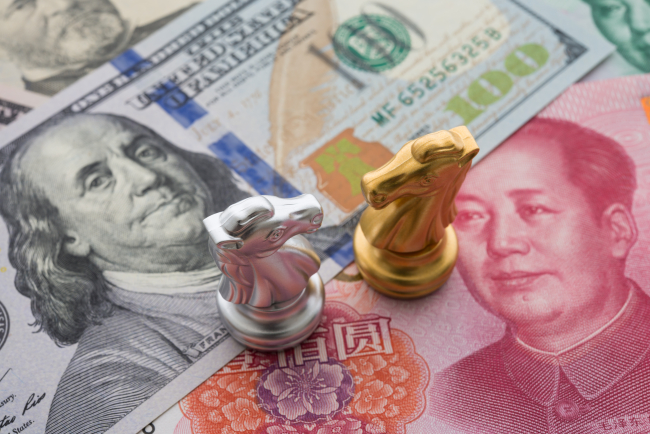Why Chinese Fintechs Have Failed to Reshuffle International Finance

New Chinese financial technologies, including unparalleled electronic payment systems, have so far failed to threaten U.S. financial dominance.

- Obstacles include protection against Chinese acquisitions and concerns about data privacy.
- Cultural and regulatory differences have also made Chinese fintechs’ adoption abroad uneasy.
- Cross-border payments are even more difficult to convert to these fintechs, whose technological benefits are small compared to the advantages of U.S. dollar-based systems.
- Concerns related to financial sanctions have heightened various countries’ interest in alternative payment systems, with little effect so far.
This Memo is also available in French, "Pourquoi les fintechs chinoises ont échoué à reconfigurer la finance internationale".

Available in:
Regions and themes
ISBN / ISSN
Share
Download the full analysis
This page contains only a summary of our work. If you would like to have access to all the information from our research on the subject, you can download the full version in PDF format.
Why Chinese Fintechs Have Failed to Reshuffle International Finance
Related centers and programs
Discover our other research centers and programsFind out more
Discover all our analysesHow Geopolitical Tensions Reshape Trade Patterns: Geoeconomic Fragmentation, or China’s Big Manufacturing Push?
A data-based analysis shows that widespread geoeconomic fragmentation of world trade is not visible, at least so far. In contrast, the geopolitically-motivated challenges to international coordination are striking, notably in relation with China's surging surplus in manufactured goods trade.
Multi-alignment and De-risking: The Global South Response to World Fragmentation
Turbulences and conflicts threaten the stability of the global order. What is the Global South’s response to these risks?
Power and Financial Interdependence
The link between financial self-reliance and geopolitical power has long been debated. The unbalanced Sino-American trade relationship has created asymmetric financial ties which generate potential sources of leverage for both parties and will not quickly disappear. Absent a clarifying major crisis, it will be difficult to definitively determine which party has greater leverage.
Climate, Finance, and Geopolitics: Human Self-delusions and the Challenges for Europe
The combination of geopolitical tensions, climate disruption, and the growing role of finance in the economy is taking us into uncharted territory. Until recently, each of these subjects was handled separately, but they are now inextricably linked by two shared characteristics: the gravity of the threat, and the fact that they all lay bare the scale of human self-delusions.









